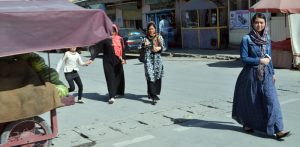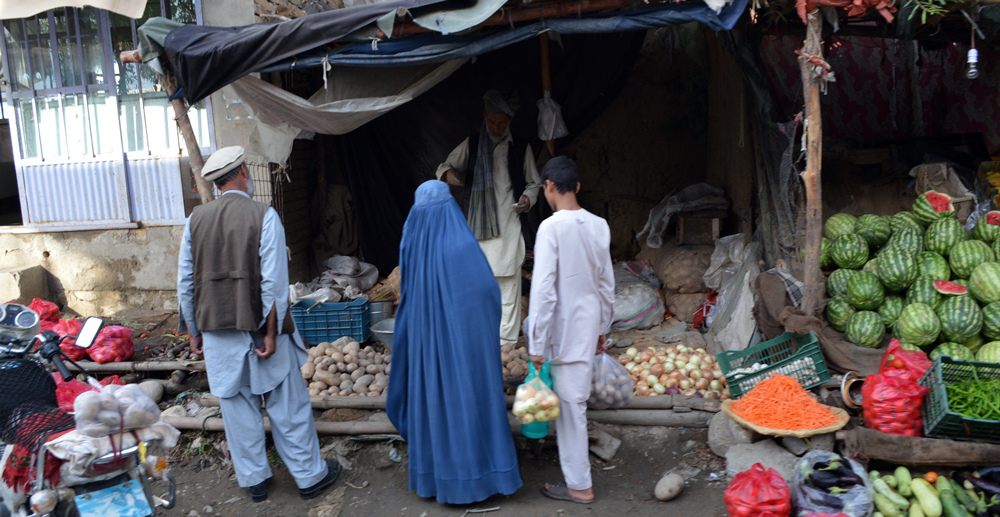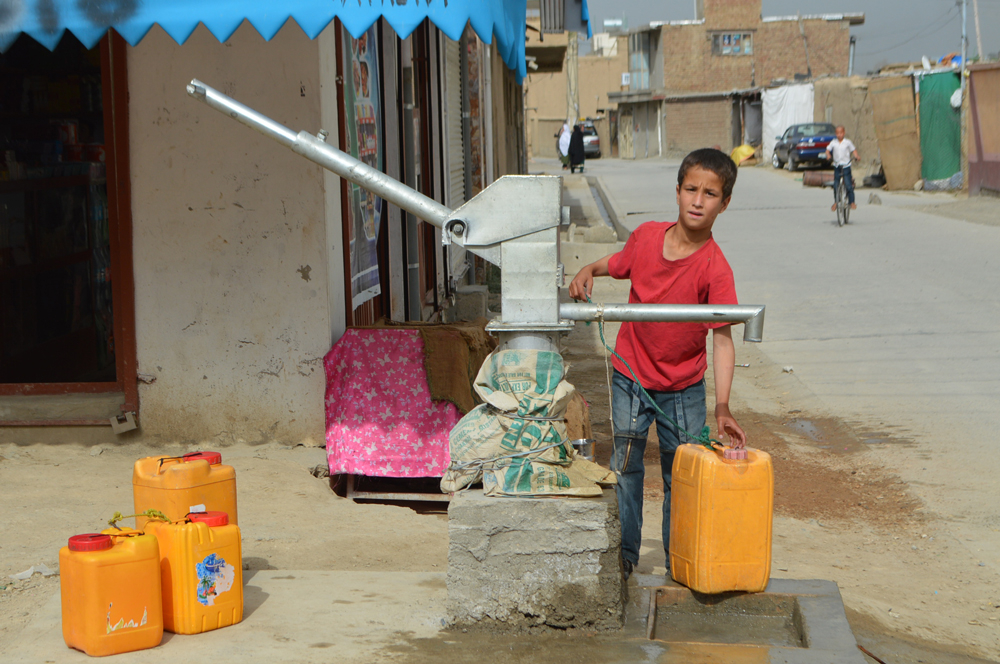Kabul: Since returning to Afghanistan a year ago, Asma has been able to join the university in Kabul. She says the education she received as a refugee in Peshawar, the town across the border in Pakistan, made it possible for her to join a university in her own country.
“You may take us out of Peshawar but you can’t take the city out of our heart and soul,” Asma, 20, told News Lens Pakistan.
Her father brought the family back to Kabul after living for 20 years as refugee in Peshawar. All his seven children were born there.
“We lived there, our children attended schools there and made friends but the authorities kept bothering us, asking for documents, so I had to return to Kabul,” Sirajuddin, 57, told News Lens Pakistan.
Concerns have risen about Pakistan’s harsh stance towards Afghan refugees as relations between the two countries have soured. The neighbours regularly blame each other for fomenting trouble inside their borders.
Pakistan has deported Afghan refugees and closed down old refugee settlements like Kacha Garhi and Jallozai in Peshawar’s suburbs amid fears they provide safe havens to terrorists.
“Returnee monitoring continues to raise concerns about intimidation and pressure exerted on refugees coercing their return,” says Afghanistan Humanitarian Needs Overview for 2016.
“Assistance packages provided to refugee returns at transit centres typically last less than two months. Follow up of returnees highlight significant challenges and concerns around long-term reintegration. Circumstances for undocumented returns are exacerbated due to their lack of documentation and increased legal vulnerability.”

Asma’s family was among 58,000 registered Afghan refugees who were repatriated from Pakistan last year, according to the United Nation’s High Commissioner for Refugees (UNHCR).
Over the last 35 years, Pakistan has hosted the world’s largest refugee population.
At the peak of refugee crisis in the wake of Afghan war and later conflicts in Afghanistan, more than four million Afghans have lived in refugee camps and settlements across Pakistan, mainly in the border provinces of Khyber Pakhtunkhwa and Balochistan.
According to the Ministry of States and Frontier Regions (SAFRON), more than 3.9 million Afghan refugees have been voluntarily repatriated since 2002. Despite the return of a huge number of refugees, UNHCR estimates almost 1.5 million registered Afghan refugees remain in Pakistan, where they are allowed to stay till December 2017 under a tripartite arrangement between Kabul, Islamabad and UNHCR.
In addition to the “1.6 million” that are registered, “1 million are unregistered Afghan refugees living in Pakistan illegally,” Syed Abrar Hussain, Pakistani Ambassador to Kabul, told News Lens.

Refugee returns pose “considerable challenges to the country’s absorption capacity”, according to the 2014 Humanitarian Needs Overview from the UN’s Office for the Coordination of Humanitarian Affairs (UNOCHA).
While the number of returnees has reduced considerably since 2007 and 2008 when Pakistan closed down big refugee settlements in Khyber Pakhtunkhwa, the Afghan government has repeatedly asked Pakistani authorities to extend the stay of Afghans in view of its limited capacity to absorb them.
Afghan Minister for Refugees and Repatriation Syed Husain Alemi Balkhi visited Pakistan in April to ask the government for an extension.
For repatriation to be sustainable, returnees need incentives, or what the Afghan President Ashraf Ghani calls the “pull factor”: land, jobs and basic services in the right place.
So far, the returnees – who, according to UNHCR, make up around a quarter of Afghanistan’s current population – have been without these, forcing them to either return to Pakistan or become internally displaced in search of assistance and sustenance.

Aid agencies say returnees are living in situations not much different from that of those inside Afghanistan displaced by internal conflict. Having lived away from their villages and homes for decades, the returnees find their lands grabbed by others and no prospect of employment or farming.
Many refugees who fled the rural areas of Afghanistan during the years of war have grown used to a more urban environment in Pakistan.
Even as they return, they choose to live close to urban centres, with suburbs of cities like Kabul and Jalalabad becoming urban slums for returnees.
Sirajuddin found a job in an international non-government organization on returning to Afghanistan. His children always ask him to arrange their vacations in Peshawar.
“Our people are accustomed to the society in Pakistan because they have lived there for nearly four decades now,” says Sirajuddin. “It would be some time before we could adjust to life in Kabul.”
Sirajuddin says security and lack of basic necessities like education, health and safety are the reasons that “irritate Afghan refugees that have returned home.”
In view of the above concerns, many refugees in Pakistan resist returning to Afghanistan. For Jawad Ahmed, a college student and part time tailor, his choice to stay back is determined by lack of security back home.
“The news of conflict and Taliban attacks is a sign that we would not have a peaceful life in Afghanistan,” says Jawad, 27. “It’s better to stay in Pakistan till the situation improves.”
According to Zahoor Rehman, a researcher with the Department of Peace and Conflict Studies at Peshawar University, resettlement in a war-torn country is not an easy decision for Afghans who have lived in Pakistan for many years.
“We [Pakistan] should not push Afghan refugees to return because they are protected under international conventions and law,” said Rehman.



